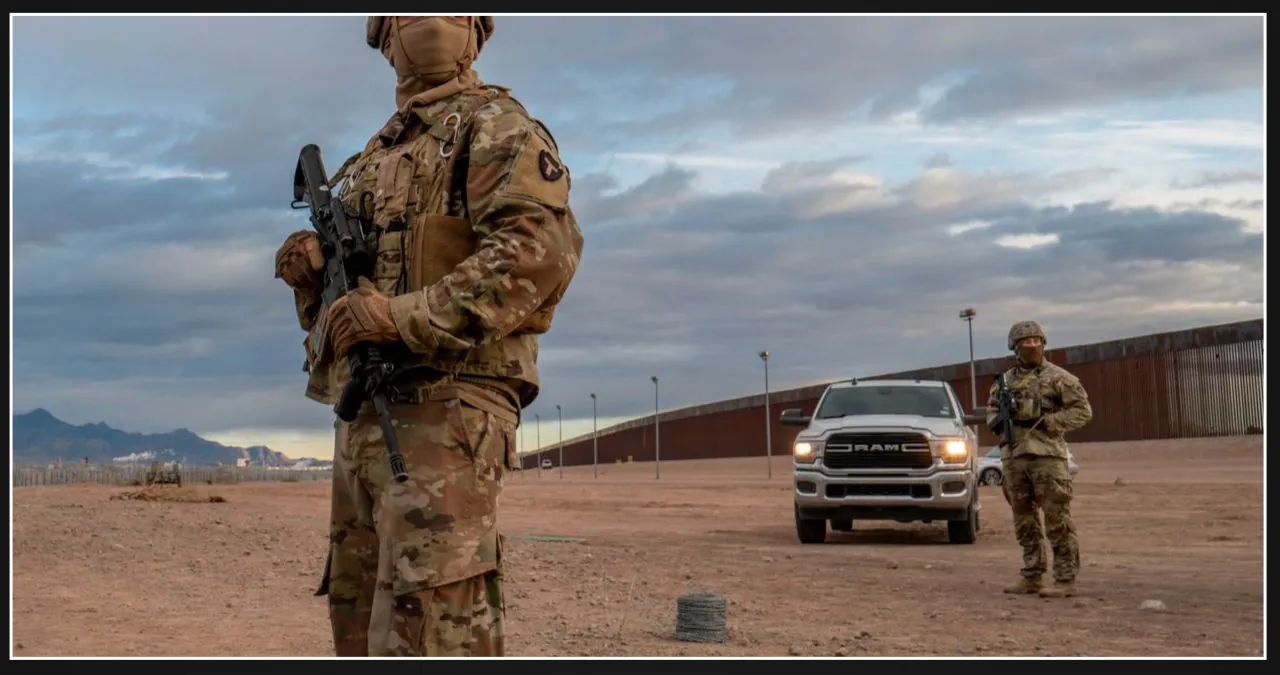With the imminent arrival of the Trump administration, there is no doubt that mass deportations will be one of their main focuses. Figures such as Stephen Miller, President-elect Donald Trump’s deputy chief of staff, and Tom Homan, his border czar, have alluded to the possibility of employing the military and Congress to execute the largest mass deportation campaign in American history. As Trump’s inauguration draws near, undocumented immigrants are left to contemplate the potential consequences they may face.
In South Texas, Maria, a mother of two U.S.-born teenagers who crossed the border illegally from Mexico in 1988, has been living in a small corner, sandwiched between the U.S.-Mexico border and a fortified Border Patrol checkpoint located 77 miles to the north. For many years, Maria has managed to evade the attention of immigration officers, but with Trump’s return to the White House, her circumstances could potentially undergo a critical transformation, as highlighted in a recent report by The New York Times.
“Ever since Trump’s election, we have constantly lived in fear, always cautious about taking steps to avoid drawing attention,” expressed Maria, who prefers to keep her last name anonymous due to concerns about attracting the authorities’ scrutiny. “But now, with his impending inauguration, we feel as though danger lurks around every corner. There seems to be nowhere left for us to seek refuge.”
Maria, a married undocumented immigrant, is part of what is known as “mixed-status” families. These families consist of at least one undocumented parent who is caring for children who are legal U.S. residents or citizens. In the Rio Grande Valley alone, it is estimated that around 75,000 children live in such families, as reported by La Union del Pueblo Entero and Human Impact Partners in 2018.
In the months leading up to the November election, Maria, filled with worry, took it upon herself to teach her older daughter, who is now 15, how to drive. She also had a heart-to-heart with her daughters, instructing them to be ready to stay with their legal relatives in the area, just in case one day she didn’t return home.
“We are aware that there is always a possibility of being deported from the moment we crossed the border illegally,” Maria stated in an interview with The New York Times.
Maria’s elder daughter, Maria, expressed her determination to study immigration law so that she could reunite with her mother in case she faced deportation. She envisioned her mother being present for her graduation, wedding, and all significant milestones in her life.
Laura, 35, works as a clerk at a medical clinic and is an immigrant residing along the Texas border. She came to the U.S. as a child and later married a U.S. citizen, resulting in the birth of two American children. As a beneficiary of the Deferred Action for Childhood Arrivals (DACA) program, she has limited legal status. However, her authorization is set to expire in two months, and she lacks confidence in Trump’s commitment to maintaining the program.
“I can’t even bear the thought of leaving my children behind if I have to go back to a country that has changed so much,” she shared with The New York Times.
The concerns of the individuals are justified, as the new administration has clearly stated that their main focus for the next four years will be on deporting unauthorized migrants, with a special emphasis on starting with those who have criminal records.
“Incoming border czar Tom Homan emphasized that under President Trump’s directive, the deportation plan will prioritize public safety threats and national security threats. In an interview on Fox News’ “Hannity” program on November 11, Homan stated, “Our focus will be on identifying and targeting thousands of illegal alien gang members. If you are in the country illegally, you should not feel comfortable. I certainly won’t.” Homan’s remarks underscore the administration’s commitment to enforcing immigration laws and ensuring the safety of the American public.”
Incoming deputy chief of staff, Stephen Miller, has hinted that the Trump administration is considering launching mass deportations from the very first day. However, accomplishing such an operation would require significant structural changes. Furthermore, Miller disclosed that President Trump intends to implement a series of executive orders aimed at tightening border security and initiating what could potentially be the largest deportation operation in American history.

